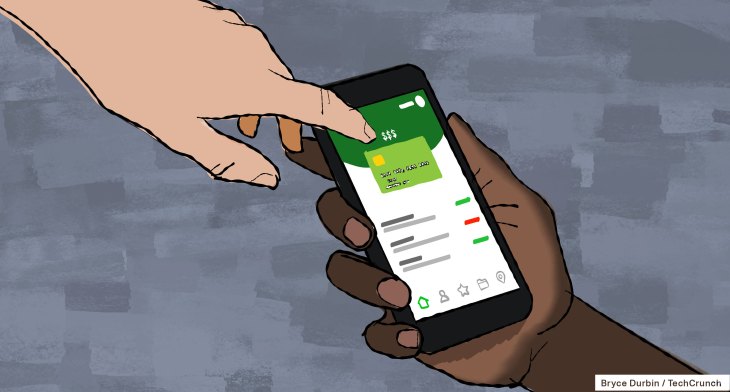Upgrade, a provider of personal credit lines and other consumer financial products, today announced that it’s agreed to acquire Uplift, the buy now, pay later (BNPL) vendor, for $100 million in cash and stock.
It’s likely not the exit Uplift was hoping for — and a sign of serious consolidation in the BNPL space, which just a few years ago was booming, buoyed by pandemic-era spending habits. Uplift had raised nearly $700 million in equity and debt, securing $123 million at a reported $195 million valuation in its Series C round alone.
In a conversation with TechCrunch, Renaud Laplanche, Upgrade’s CEO and a co-founder, said that Uplift initially reached out in May to inquire whether Upgrade would be interested in participating in Uplift’s Series D financing as a strategic investor. Upgrade, however, thought a purchase made more sense — and it’s tough to argue with that logic. Upgrade arguably got Uplift for a song.
“There’s a lot of areas of potential synergy,” Laplanche said. “We’re already providing BNPL and financing at the point of sale for home improvements and auto purchases, so this is really an expansion of our strategy into travel as another vertical and another significant need of consumers.”
Laplanche is referring to the BNPL-style product that Upgrade launched in October 2021, which lets users pay down their debt over six to 36 months with a fixed interest rate. Like many BNPL products on the market, Upgrade’s features a checkout option on merchants’ websites that allows Upgrade to group a user’s card purchases into one lump some and invoice them what they owe over four months.
In Uplift, Upgrade saw a gateway to a previously untapped portion of the BNPL segment: travel. Uplift, Laplanche noted, has a distribution network that includes 300 of the top airlines, cruise lines and hotel chains — a network that’d be tough to build from scratch.
“Travel is a big market, obviously — over $450 billion in annual consumer spending — and a significant area of financing and payments needs for our customers, so we believe there is a great opportunity to keep growing the distribution and user base,” Laplanche said.
Uplift was founded in 2014 by Brian Barth, who previously sold his travel startup SideStep to Kayak for $200 million. From the start, the focus was travel, with an emphasis on partnerships with the vacation package sites of United Airlines, Southwest and American Airlines as well as Allegiant Travel Company and Kayak.
Uplift’s core offering was installment plans for trips. For example, if a family was considering a trip to Disneyland for a price of $2,000, Uplift might’ve offered a one-year financing plan with monthly payments of $189 a month.
At one point, Uplift was on track to drive nearly $1 billion in loans — or so the company’s president, Robert Soderbery, claimed. And those rosy prospects attracted major backers like Madrone Capital Partners, DNX Ventures and Ridge Ventures. But evidently, business sagged somewhere down the line.
To blame could be general malaise in the BNPL sector post-pandemic, particularly among consumer-focused BNPL vendors.
Klarna, once Europe’s most valuable VC-backed company, suffered an 85% valuation cut, from $45.6 billion to just $6.7 billion in July 2022 following an $800 million round. Meanwhile, publicly traded BNPL companies like Affirm and Australia’s Zip have seen their share prices plummet; Affirm was recently forced to shut down its crypto unit and lay off 19% of its staff.
Changing consumer spending habits likely played a role in scaring investors away. But the threat of stricter oversight — and rising delinquency rates — undoubtedly had something to do with it, too.
The purchase of Uplift effectively doubles Upgrade’s customer base, adding 3.3 million users to the platform, and comes as Upgrade weighs an IPO. Laplanche previously said that Upgrade would aim for a public offering sometime in 2023, but it’s unclear whether the company’s still committed to that timeline.
Over the past several years — perhaps in anticipation of an IPO, whenever it ends up arriving — Upgrade has sought to diversify its offerings, launching a rewards checking account, a Bitcoin rewards card, a credit card with BNPL-like options and a debit rewards card for everyday purchases. Laplanche says that Upgrade’s looking to provide close to $10 billion in credit by year-end 2023.
“Travel has become more expensive in the last couple of years, and we’re glad we can provide financing for yet another large expense category, and make that financing more affordable through Upgrade’s access to low-cost capital,” he added. “This ‘merchant network’ strategy is a great complement to the direct-to-consumer strategy we’ve implemented with mobile banking, cards and loans.”
Uplift’s team will join Upgrade in “various capacities,” Laplanche says, moving from their current teams to corresponding teams at Upgrade (e.g. finance to finance). That includes Uplift execs, who’ll be joining Upgrade in their respective field, including CEO Brian Barth as head of strategy.
